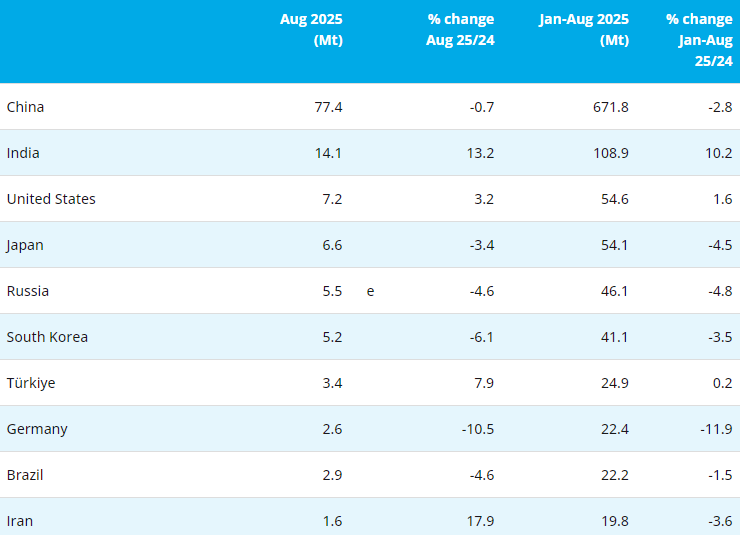[Ferro-Alloys.com] The United States’ three remaining manufacturers of polysilicon today thanked President Trump and praised U.S. negotiators for securing the Chinese commitment to purchase U.S. polysilicon in the Phase 1 U.S.-China trade deal, while noting any benefit for U.S. manufacturers and workers will depend on how China implements the agreement.
Polysilicon is the fundamental building block for the semiconductor and solar industries, used to make ingots and wafers for solar cells and the integrated circuits that power everything from smartphones to autonomous vehicles and electronics. The U.S. polysilicon industry represents over $10 billion in capital investment and employs thousands in high-skilled, high-wage jobs. The inclusion of polysilicon in the Phase 1 trade deal reflects recognition by U.S. government officials of the U.S. polysilicon industry’s strategic significance to American defense and energy industries and future manufacturing innovation.
“We hope this agreement will result in a more level playing field for this important building block to the solar and electronics industries,” said Mark Bassett, chairman and CEO of Michigan-based Hemlock Semiconductor Operations (HSC). “Maintaining and expanding U.S. production capacity is vital to supporting high-wage American manufacturing jobs based on high-tech innovation.”
In 2014, China closed its market to U.S. polysilicon by imposing tariffs on imports of U.S-made solar-grade polysilicon. China has heavily subsidized its own polysilicon producers since imposing the tariffs on U.S. producers and has focused on concentrating demand for polysilicon in China. This industrial policy has created massive overcapacity in China, burdening the global industry and worsening conditions for the U.S. polysilicon industry.
“Regaining meaningful market access to China, which represents over 92 percent of global polysilicon demand, is essential to the U.S. polysilicon industry,” said WACKER POLYSILICON Vice President Mary Beth Hudson, who is responsible for the company’s polysilicon plant in Tennessee. “This Phase 1 agreement represents an important first step in resuming exports and meeting the increasing demand of Chinese customers for highest quality polysilicon.”
The existing Chinese tariffs forced REC Silicon last July to shutter its $1.7 billion polysilicon plant in Moses Lake, Wash., and lay off around 450 workers. HSC had to abandon its investment of over $1 billion in a new, state-of-the-art polysilicon plant in Tennessee in 2014 after the Chinese tariffs took effect. A SunEdison polysilicon plant in Pasadena, Texas closed in 2015 and was purchased by a Chinese company, allowing China access to SunEdison’s patented technology. REC Silicon still operates a plant in Butte, Mont., while HSC has operations in Hemlock, Mich., and WACKER POLYSILICON has a plant in Charleston, Tenn.
“It is really positive that the U.S. government has recognized the importance of the U.S. polysilicon industry. Being locked out of the global market for polysilicon for the last several years has cost the U.S. high-paying jobs and billions of dollars in investment,” said Tore Torvund, CEO & President of REC Silicon.
“While we hope that this partial restoration of access to China’s polysilicon market will improve the outlook for U.S. polysilicon producers, it’s imperative that the U.S. continues to focus on developing and strengthening critical links in the solar value and supply chains, providing a market for our polysilicon and other U.S. solar manufacturers here in the vibrant domestic U.S. solar market,” he added.
- [Editor:tianyawei]



 Save
Save Print
Print Daily News
Daily News Research
Research Magazine
Magazine Company Database
Company Database Customized Database
Customized Database Conferences
Conferences Advertisement
Advertisement Trade
Trade
















Tell Us What You Think